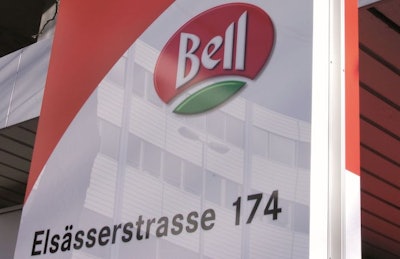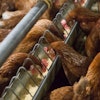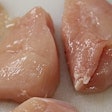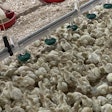
For the fiscal year just ended, Switzerland-based Bell Food Group reports that increased sales helped deliver profit equal to the previous 12 months.
The past year has presented business challenges to the Bell Food Group. However, commenting on the results just published for last year, the company’s CEO Lorenz Wyss reported that these latest results are in line with the previous year.
At 4.3 billion Swiss francs (CHF; US$4.65 billion), net sales were 6.4% higher than the previous year (on currency-adjusted terms).
Expressed as Earnings Before Interest and Taxes (EBIT), profitability increased to CHF162.9 million, and annual profit to CHF127.8 million for the 12 months just ended. For these metrics, the latest figures were 0.4% and 0.5%, respectively, above those reported for 2021.
Despite the challenges arising from rising costs, high inflation, weak consumer demand and normalization of the coronavirus (COVID-19) situation, Wyss reported that the overall result was driven by both Bell Switzerland and Bell International. The latter business area had a particularly successful year, according to the company.
The group will request approval of a dividend of CHF7 at the upcoming Annual General Meeting.
Solid progress reported for Bell’s business units
For the Bell Switzerland operation, sales are reported to have held up well for retail channel, while the food service channel registered a substantial increase.
Meanwhile, a strategic focus on raw ham and sustainable poultry gained sales and market share for Bell International. As a result, sales improved further from an already strong base in 2021. Because of its strong market position, the group reports being able to pass its rising costs on to its customers. The company reports a shift in consumer demand towards lower value-added convenience foods.
Geopolitics impacted Bell's costs
In its report to analysts, Bell Food Group quantified how geopolitical distortions over the previous 12 months had contributed to its inflated costs.
Adding CHF57 million to its costs compared to the 2021 financial year were higher feed prices, together with CHF46 million for personnel, CHF19 million for energy, and CHF16 million for transport.
More on Bell Food Group
According to the firm’s own website, Bell Food Group is among the leading food companies in its product groups. In its home market of Switzerland, it is market leader.
Since it was founded in 1869 by butcher Samuel Bell in the city of Basle, the company’s business has expanded to become an international food group. The group now offers ranges from meat, poultry and charcuterie, as well as seafood and convenience products such as salads, sandwiches, ready meals, pasta, soups and condiments.
With more than 12,600 employees, Bell operates from 64 locations in 15 countries.
In its home market, Bell Switzerland is market leader or holds a leading position in most of its product groups in which it is involved. Supplied by its own production and targeted purchases, it produces and processes fresh beef, veal, pork, and lamb for retail and food service sales channels.
In Switzerland and Austria, the Bell Food Group operates a fully integrated poultry operation from hatching egg to ready-to-serve products. According to the latest report, the group is now the leading organic poultry producer in Europe. In other market sectors, the group operates to high animal welfare standards through Austria’s market leader Hubers Landhendl, and Bell in Switzerland. From Bavaria in southern Germany, Süddeutsche Truthahn AG has become a significant producer of turkey products.
Also in its home market, Bell produces a wide range of deli products, including cooked and cured sausages, as well as cured and dried meats. Its operations in Germany, France, Spain and Poland produce regional meat specialties.
With annual slaughtering of more than 25 million birds, Bell Food Group is among the leading poultry companies in Europe, according to WATTPoultry.com’s Top Poultry Companies survey.
Recent developments in Bell Food Group’s business
In March of 2022, the group announced changes to its operational structure. This resulted in the formation of five business units. As well as the meat divisions Bell Switzerland and Bell International, these include Eisberg (salads, fruit, and vegetables), Hilcona (mainly fresh and frozen convenience foods), and Hügli (non-perishable convenience products such as soups, sauces, and seasonings).
Three month later, Coop reported its intention to purchase a greater stake in the Bell Food Group.


















